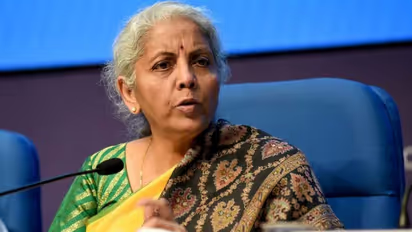Opinion: Decoding where Budget 2023 delivers... and disappoints

Synopsis
Budget 2023 is focused on creating employment and generating a high GDP growth rate via push to capex, support to MSME, improvement in infrastructure and better health and education facilities, but at the same time, it is disappointing for the lower and middle-income group people as it hardly addressed their concerns, says Shishu Ranjan
The much-awaited last full budget by the current government before next year's general elections is appreciable for the fact that it is not an election budget, and the goal of fiscal consolidation, along with a continued focus on capital expenditure, remained the key focus area for 2023-24.
On the positive side, the budgetary estimates for the capital expenditure (capex) are increased by 33 per cent to reach Rs 10 lakh crore, and the crowding-in of private investment is expected to accelerate the GDP growth rate.
Also Read: India Inc hails Budget 2023, calls it bold and growth oriented
It is important to note that this is the third year in a row which has seen more than a 30 per cent increase in capex budgetary outlay and is helping India to create world-class infrastructure, which is necessary for sustaining a high GDP growth rate for a longer time period.
The increase in health and education budgetary allocation by 12 per cent and 8 per cent, respectively, will help in the development of human resource, another necessity for inclusive development.
The targeted fiscal deficit target of 5.9 per cent is the continuation of the fiscal consolidation efforts and is laudable in the current gloomy global economic environment. Reduction in fiscal deficit is necessary to maintain macroeconomic stability by checking the retail inflation, stabilizing the exchange rate, inducing private investment and signalling a credible policy environment.
However, the government could have done better to improve the domestic saving and investment rate to have a positive impact on the GDP growth rate. The relief provided to the individual income taxpayer by marginally increasing the exemption limit is an eyewash. In the last two years since the new regime's introduction, the proportion of taxpayers opting for the new regime is not available and that cast apprehension on its success.
Given that the new tax regime does not provide any benefit for small saving under 80C, investing in health insurance schemes under 80D, or expenses on recreational activities (Leave Travel Allowances), the push to incentivize the new income tax regime will discourage people from saving and investing for better future, and driving them towards consumption.
Though this may be encouraging in the short run via enhanced private consumption expenditure, it is more likely to have an adverse impact on the national saving rate, which is already at the lowest level in a decade and can impact India’s growth story adversely. If India has to achieve a double-digit growth rate, it cannot only be based on FDI or FII. Domestic saving is a cheaper and more stable source in the long run and should have been encouraged to align with the goal of 'Aatmanirbhar Bharat'.
For the salaried individuals of the lower middle-income bracket, there is hardly any relief in tax liability, especially when the retail inflation is above the upper bound (6%) of RBI Targeted Inflation Rate, resulting in lower personal disposable income.
To summarize, the 2023 budget is a long-run budget focused on creating employment and generating a high GDP growth rate via push to capex, support to MSME, improvement in infrastructure and better health and education facilities, but at the same time, it is disappointing for the lower and middle-income group people as it hardly addressed their concern on real income (income minus inflation), saving, and quality living standards.
The author is Vice President-Independent Validation Unit (Model Risk) at Barclays
Also Read: Budget 2023 Income Tax slabs explained: Who will pay zero tax; what if your salary is Rs 9 lakh
Stay updated with all the latest Business News, including market trends, Share Market News, stock updates, taxation, IPOs, banking, finance, real estate, savings, and investments. Track daily Gold Price changes, updates on DA Hike, and the latest developments on the 8th Pay Commission. Get in-depth analysis, expert opinions, and real-time updates to make informed financial decisions. Download the Asianet News Official App from the Android Play Store and iPhone App Store to stay ahead in business.